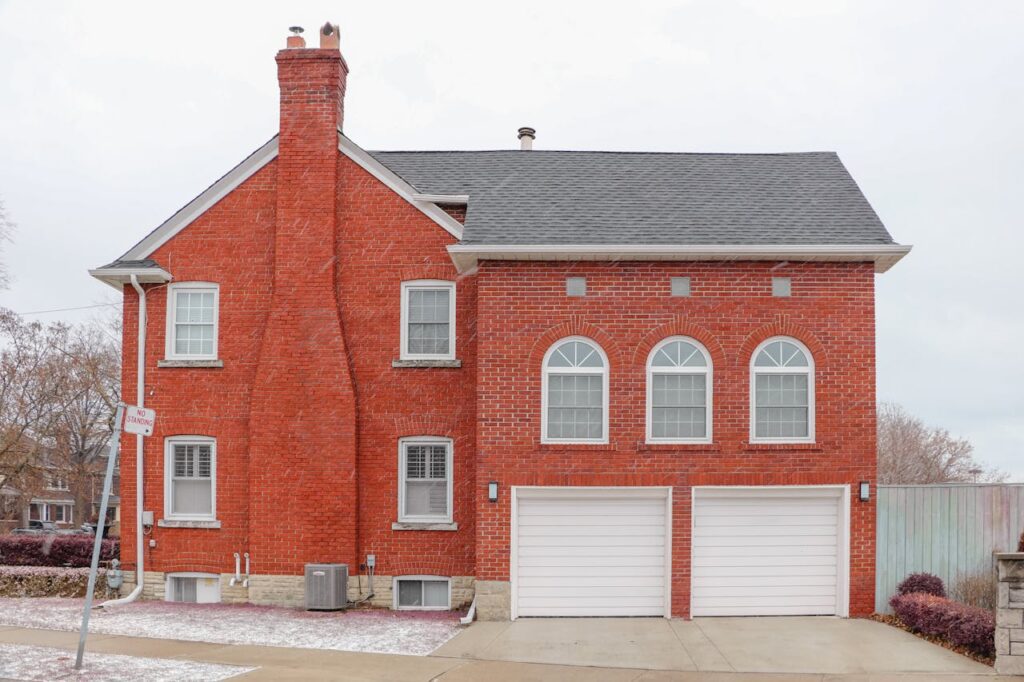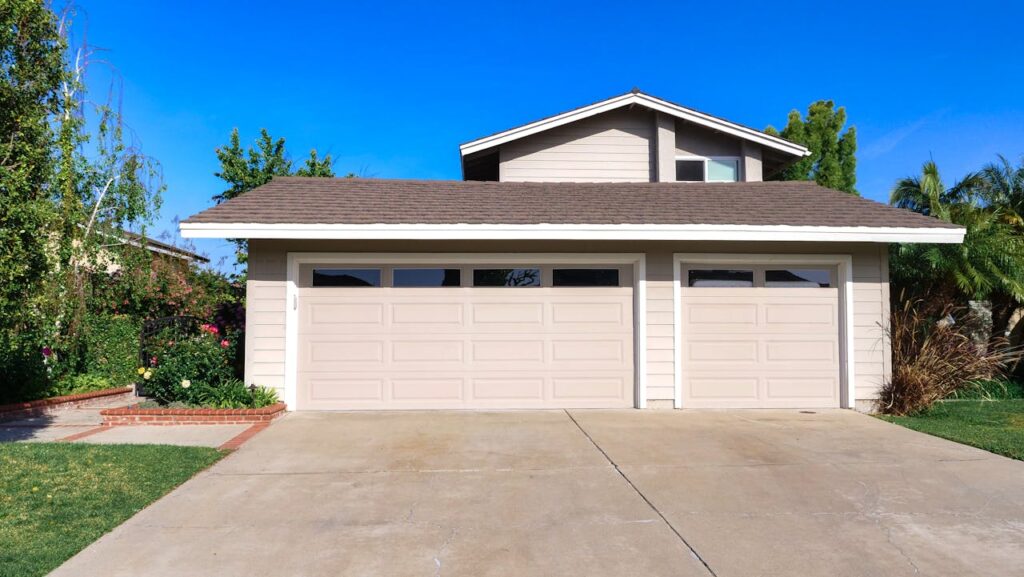Did you know that turning your garage into an Accessory Dwelling Unit (ADU) can generate high rental income? With the increasing demand for affordable housing, ADUs have become a lucrative investment opportunity for homeowners. By converting your garage, you can tap into this growing market and boost your monthly earnings. From extra living space to a source of passive income, transforming your garage into an ADU offers a range of benefits. Discover how you can maximize the potential of your property by creating a sought-after rental space right in your own backyard.
Understanding ADU Conversion Costs
Initial expenses for converting your garage into an ADU can vary widely depending on factors like the size of the space and existing infrastructure. It’s crucial to budget for permits, design plans, structural changes, and potentially upgrading utilities. Consider hiring professionals for tasks beyond your expertise. Construction costs are a significant part of turning a garage into an ADU, typically ranging from $90,000 to $150,000 or more. Factors influencing costs include materials quality, labor fees, permitting requirements, and complexity of the project. Beyond construction, additional expenses may include landscaping, furnishing, and utility connections. Consider setting aside funds for landscaping design, furniture purchases, and ensuring proper sewer, water, and electricity connections.
Timeline For Garage To ADU Transformation
Permits Process
To convert your garage into an ADU, first check local regulations. Obtain necessary permits from the city planning department. It is crucial to adhere to specific guidelines for structural changes and utility connections during this process.
Structural Modifications
Structural modifications are essential. This involves reinforcing the foundation and walls to meet safety standards. Consider hiring a professional contractor to ensure that all structural changes are done correctly.
Utility Connections
Upgrading utilities in your garage is vital. This includes plumbing, electrical, and HVAC systems. Ensure that all connections are up to code and meet safety requirements for residential dwellings.
Interior Design & Finishing
Transforming your garage into a livable space requires careful interior design planning. Focus on maximizing space efficiency, natural light, and overall aesthetics for potential tenants.
Renting & Managing
Once your ADU is ready, start advertising it for rent. Utilize online platforms and local listings to attract tenants. Establish clear rental agreements, conduct thorough background checks on potential tenants, and manage the property efficiently.
Navigating Building Codes And Permits
Understanding local building codes and permits is crucial when converting your garage into a high-rental income ADU. Research the specific regulations in your area to ensure compliance with zoning laws.
Ensure that your design adheres to all safety standards and guidelines outlined by the authorities. Consult with a professional architect or contractor to navigate through the intricate details of building codes.
Before starting any construction work, obtain the required permits from the local municipality. Permit requirements vary depending on the scope of your project, so it’s essential to acquire accurate information.
Failing to secure the necessary permits can lead to fines and legal issues down the line. Avoid complications by following the correct procedures and obtaining all required approvals.
Consider hiring professionals who are well-versed in local building codes and permit processes. An experienced architect or contractor can help you streamline the permitting process efficiently.
Having experts on board can also ensure that your ADU meets all safety and quality standards set by the authorities. Their expertise can save you time, money, and potential headaches in the long run.
Financing Your ADU Project
Setting a realistic budget is crucial when financing your ADU project. Consider all costs, including construction, permits, and utilities, to avoid financial surprises. Research various funding sources, such as loans, grants, or home equity lines of credit. Each option has different terms and requirements, so choose wisely. When taking out a loan for your ADU project, compare interest rates and loan terms from different lenders. Look for options with flexible repayment plans.
Using your home’s equity can be an effective way to finance your ADU project. Home equity loans or cash-out refinancing are common methods homeowners use. Consider crowdfunding platforms to raise funds for your ADU project. Engage with potential investors by sharing your project vision and goals.
Pros And Cons Of Financing Methods:
- Pros: Diverse funding options available.
- Cons: Some methods may have strict eligibility criteria.
Designing For Cohesion And Compliance
Creating a cohesive layout in your ADU is crucial for maximizing space and functionality. Ensure that each area flows seamlessly into the next, promoting a sense of unity. Consider open floor plans to enhance the feeling of spaciousness.
Maintain a consistent design theme throughout the ADU, using similar color schemes, materials, and finishes. This helps tie the space together visually, creating a harmonious environment for tenants. maximize natural light by strategically placing windows and skylights to brighten up the living areas.
Compliance with local regulations and building codes is essential when designing your ADU. Research the specific requirements in your area regarding size limitations, setback distances, and utility connections. Ensure that your design meets all safety standards to avoid any legal issues in the future.
Consider consulting with a professional architect or designer to help navigate the complex regulations and ensure that your ADU project complies with all necessary codes. By following these guidelines, you can avoid costly fines and delays during construction.
Incorporating accessibility features into your ADU design can increase its appeal to a wider range of potential tenants. Consider features such as wide doorways, grab bars in bathrooms, lever-style door handles, and non-slip flooring to accommodate individuals with mobility challenges.
Addressing Utility And Address Separation
Maximizing the utility of your garage conversion is crucial for a successful ADU. Ensure that all utilities are separate from the main house to comply with regulations. This includes water, electricity, and gas connections.
Efficiently managing utility systems can prevent any disruptions to both the main house and the ADU. By installing independent meters for each unit, you can accurately track utility usage and avoid conflicts over shared bills.
Creating a distinct address for your ADU is essential for legal compliance and tenant convenience. Consult with local authorities to obtain a separate address for the ADU, ensuring that it meets all zoning requirements.
Having a clear address separation also benefits tenants by providing them with a sense of privacy and autonomy. It allows them to receive mail, packages, and visitors without intruding on the main house’s address.
Parking Solutions For Your ADU
- Maximize space by organizing the layout efficiently. Consider angled parking to fit more vehicles in the available area.
- Plan for easy access to each parking spot to ensure convenience for tenants and visitors.
- Install smart parking systems that utilize sensors to efficiently manage parking spaces.
- Utilize remote access technology for tenants to easily control garage doors and access parking spots.
- Ensure sufficient lighting in the parking area to enhance safety and security, especially during nighttime.
- Incorporate security cameras for added protection, giving tenants peace of mind about their vehicles’ safety.
- Implement electric vehicle charging stations, catering to the increasing demand for sustainable transportation options.
- Consider using permeable surfaces in the parking area to reduce water runoff and promote environmental sustainability.
Evaluating Property Tax Implications
Property tax implications play a crucial role when turning your garage into an ADU. Once converted, your property may be reassessed for tax purposes. This reassessment could potentially increase your property taxes.
When converting your garage, the assessor considers various factors such as the square footage of the ADU, any additional amenities added, and the overall increase in property value. These assessments are vital in determining the new property tax rate.
Some regions offer tax exemptions or reductions for properties with ADUs. Researching local tax laws can provide insights into potential exemptions available to you. Utilizing these exemptions can help offset any increase in property taxes due to the ADU conversion.
It’s essential to understand that tax laws vary significantly by location. Therefore, consulting with a tax professional or local assessor can provide valuable guidance on how ADU conversions impact property taxes in your specific area.
Renting out your newly converted ADU can also influence property taxes. Generating rental income from the ADU may classify it as a rental property, subject to different tax regulations compared to a primary residence.
In some cases, rental income is taxed separately from regular income and may have deductions associated with it. Understanding these tax implications is crucial for ensuring compliance with tax laws and maximizing the financial benefits of renting out your ADU.
Considering the long-term financial implications of turning your garage into an ADU is essential. While the initial investment may lead to increased property value and rental income, it’s crucial to factor in ongoing expenses such as maintenance costs, utilities for the ADU, and potential fluctuations in property taxes.
Creating a comprehensive financial plan that accounts for both short-term gains and long-term expenses can help you make informed decisions about converting your garage into an ADU while ensuring financial stability in the future.
Deciding Between ADU And JADU
Zoning regulations play a crucial role in determining whether you can convert your garage into an ADU or JADU. Make sure to check with your local zoning department for specific guidelines on each type.
Understanding the zoning regulations is essential as they dictate the size, layout, and even the number of units allowed on your property. Failure to comply can result in fines or legal issues.
Consider the space requirements when deciding between an ADU and JADU. An ADU typically offers more living space compared to a JADU, providing more flexibility in terms of design and functionality.
While a JADU is smaller in size, it can still be a great option if you have limited space or prefer a simpler setup. Evaluate your needs and the available space in your garage before making a decision.
Assess the rental income potential of both options before making a choice. An ADU generally commands higher rental rates due to its larger size and amenities, attracting tenants willing to pay more for added comfort.
On the other hand, a JADU might appeal to renters looking for more affordable housing options. Consider your target rental market and financial goals when weighing the rental income potential of each option.
Compare the building costs associated with converting your garage into an ADU versus a JADU. While an ADU may require a larger investment upfront due to its size and features, it can potentially yield higher returns in terms of rental income.
Conversely, a JADU could be a more cost-effective option if you are working within a limited budget or aiming for quicker project completion. Factor in construction expenses, permits, and any additional requirements when estimating building costs.
Summary
You’ve now grasped the essential aspects of turning your garage into a high-rental income ADU. By understanding costs, navigating permits, financing wisely, and designing strategically, you’re on the right track. Remember to address utility needs, parking solutions, and property tax implications. Evaluating between an ADU and a JADU will further refine your project.
Now it’s time to put your knowledge into action. Start planning your garage conversion with confidence, knowing you have the insights to make informed decisions. Your high-rental income ADU awaits! Good luck on your transformation journey!
Revitalize Your Property With Garage Conversion ADUs By Red White & Blue Construction!
Considering transforming your garage into a fully functional Accessory Dwelling Unit (ADU) in Lafayette, CA? Red White & Blue Construction is your premier partner for expert pre-construction planning services tailored to garage conversions! We excel in crafting the ideal plans for your ADU projects, customizing our pre-construction approaches to perfectly match your unique needs and aspirations. Known for our expertise in pre-construction planning, we are dedicated to converting your garage into the ADU of your dreams, ensuring every aspect is carefully planned and executed to exceed your expectations. Our esteemed reputation throughout the Bay Area speaks to our commitment to precision, quality, and the high standards we uphold in every phase of planning.
At Red White & Blue Construction, our goal is to do more than just lay the groundwork; we lead you toward the successful realization of your ADU project. With our detailed planning, transparent pricing, and unparalleled customer service, starting a garage conversion ADU project with us guarantees a smooth, efficient process. Choose Red White & Blue Construction for all your pre-construction planning needs and take the first step towards transforming your garage into the ADU you’ve always wanted. Contact us today to get started!
Disclaimer
The materials available on this website are for informational and entertainment purposes only and not to provide advice. You should obtain advice concerning any particular issue or problem from a professional. You should not act or refrain from acting based on any content included in this site without seeking legal or other professional advice. The information presented on this website may not reflect the most current building developments. No action should be taken in reliance on the information on this website. We disclaim all liability concerning actions taken or not taken based on any or all of the contents of this site to the fullest extent permitted by law.





